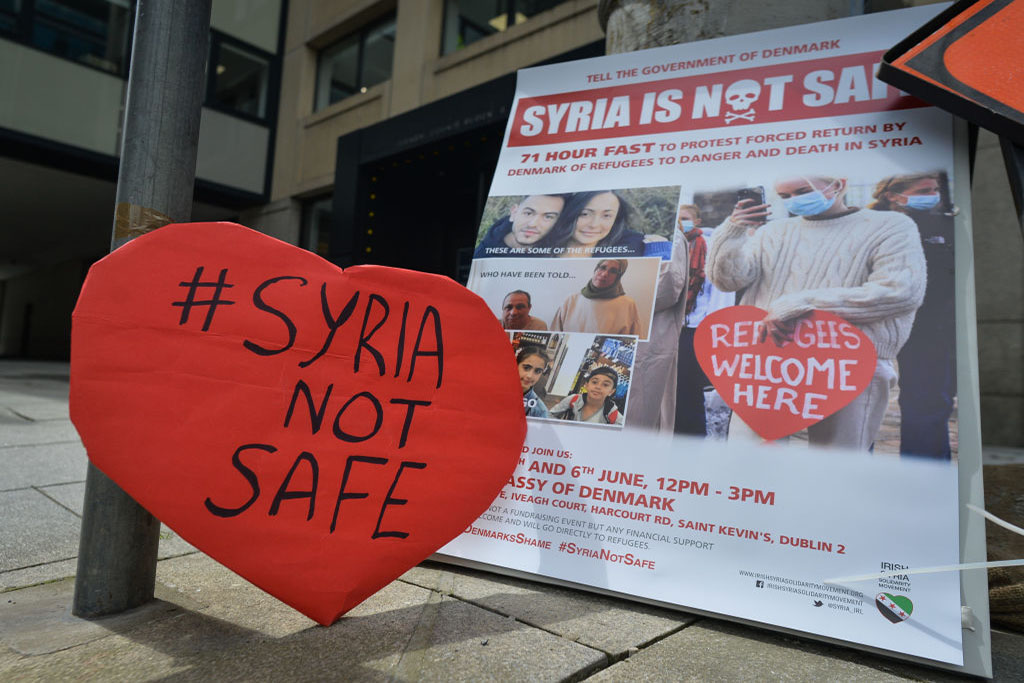
Recent developments within Western nations, including the US, UK, and the European Union (EU), highlight a complex and contentious movement toward normalizing relations with the regime of Bashar al-Assad. This shift is primarily driven by the desire to manage refugee flows, but it is far from unanimous and still faces opposition.
In the US Senate, efforts to pass a law prohibiting normalization with Assad hit a significant roadblock. Senator Ben Cardin (D-MD), who chairs the Senate Foreign Relations Committee, halted the bill after negotiations with the American Coalition for Syria (ACS) collapsed. According to Muhammad Alaa Ghanem, a policy official at the coalition, discussions with Cardin’s office were ongoing for two months.
The coalition noted that the Biden administration, through Cardin’s office, insisted on amendments that included removing provisions designed to protect refugee property, combat theft of humanitarian aid, and amend the ban on normalization with Assad’s regime. These proposed changes led to the breakdown of negotiations.
Despite this setback, Ghanem stressed that support for the bill remains strong, as evidenced by its overwhelming approval in the House of Representatives in February. The coalition remains committed to pushing the bill forward to protect Syrian rights.
In Europe, a group of eight countries — Austria, Croatia, Cyprus, the Czech Republic, Greece, Italy, Slovakia, and Slovenia — has called for the EU to re-evaluate its approach to Syria. In a letter to EU chief diplomat Josep Borrell, these nations emphasized the need for a more “active and practical policy” towards Syria, potentially linked to addressing refugee flows.
This movement is seen by some as a bid to portray Syria as a “safe country” to facilitate the return of refugees. Legal experts, such as France-based lawyer Al-Muatasem Al-Kilani, warn that such steps might lead to increased restrictions on refugees and pressure to normalize relations with Assad. The EU’s existing legal frameworks and the European Court of Human Rights, however, continue to pose significant barriers to such changes.
Italy has taken a notable step by appointing an ambassador to Syria, the first G7 nation to do so since 2011. This move, announced on July 26, underscores Italy’s shift towards re-establishing formal diplomatic relations with Damascus.
Meanwhile, Germany remains divided on the issue. While the government and most political parties oppose normalization, some politicians argue for re-evaluating the policy. The far-right Alternative for Germany (AfD) party supports normalization to curb refugee flows. Conversely, the German Foreign Ministry, led by the Green Party, firmly rejects any moves towards normalization, citing ongoing human rights abuses by the Assad regime.
The debate over normalization is intrinsically linked to the refugee crisis. According to the Financial Times, the eight EU countries pushing for policy re-evaluation aim to reduce the influx of Syrian refugees by depicting Syria as safe. However, human rights organizations and the UN consistently report that Syria remains unsafe for returnees, highlighting ongoing violence, arbitrary detention, and torture.
Amnesty International and the Office of the United Nations High Commissioner for Human Rights (OHCHR) have documented severe abuses against returning refugees. The OHCHR’s recent report detailed violations, including arbitrary detention and enforced disappearances, emphasizing that returnees are particularly vulnerable.
Despite some Western countries moving towards normalization, a significant bloc within the EU and other Western nations continue to oppose such actions. The EU, for instance, has maintained sanctions on the Assad regime due to its ongoing human rights violations.
While there is a discernible trend towards normalization with the Assad regime among certain Western nations, driven by refugee management concerns, this movement is neither majority-supported nor uncontested. Opposing voices within the US and Europe underscore the ongoing human rights violations in Syria and advocate for sustained pressure and sanctions against Assad’s government.








